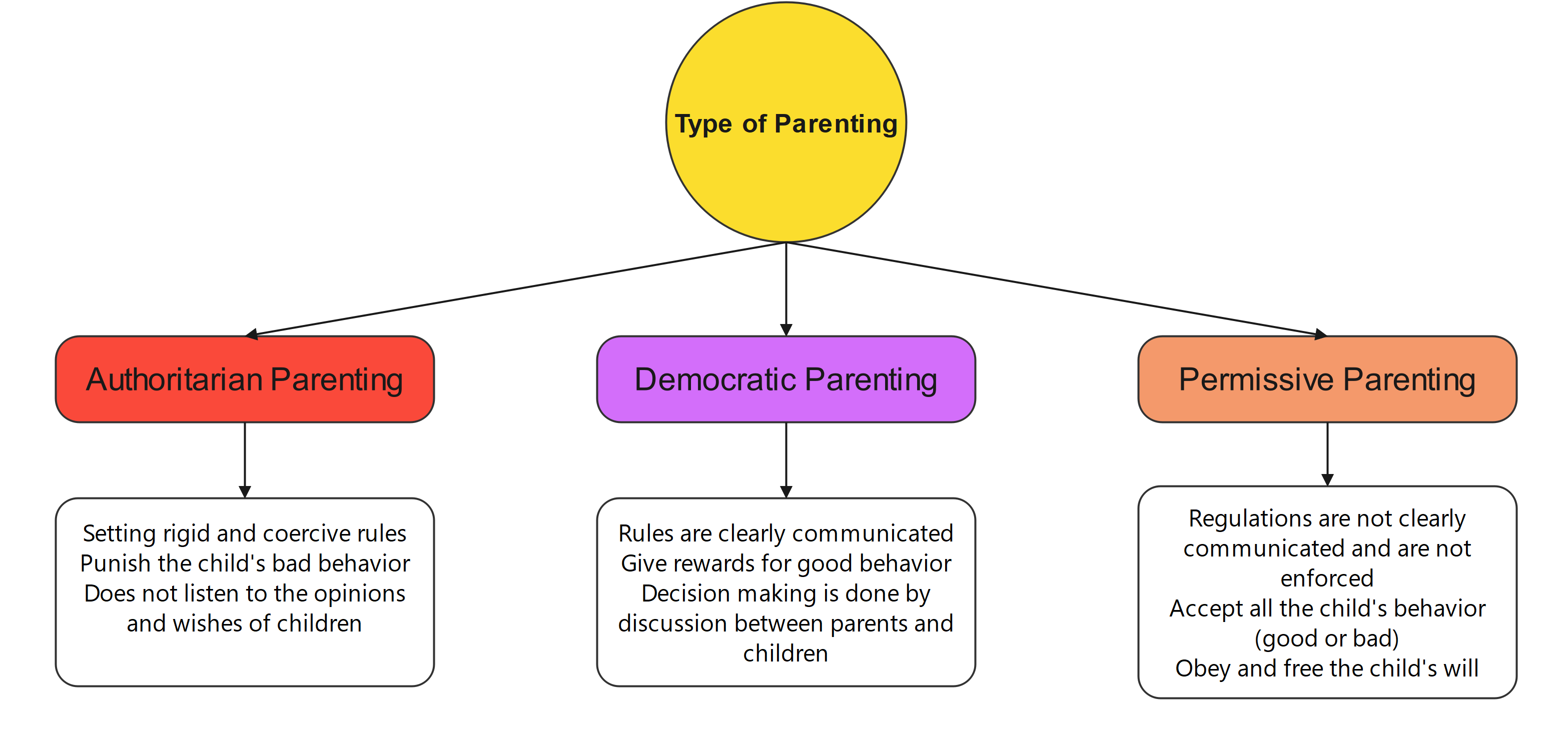Parenting Patterns in Families Prone to Radicalism: A Case Study of The Ex-Laskar Jihad Salafi Family
DOI:
https://doi.org/10.26555/almisbah.v10i2.6858Keywords:
The Parenting, Radicalism, Salafi, Laskar Jihad, Islamic educationAbstract
Parenting is a fundamental tool for the future development of children. Every parent is expected to be able to apply good parenting to their children. However, in reality, not all parents can carry out good parenting. The topic of study about parenting is still an interesting study to date. In this study, researchers examined parenting styles in families prone to radicalism in case studies of Salafi families who were ex-Laskar Jihad. This article examines parenting styles in these families and the factors that influence them. The method in this research is qualitative with a descriptive-analytic model. The research approach is a case study. The study results show that the parents in the family adopt different parenting styles for each child based on their characteristics. For the first child, parents tend to apply authoritarian parenting. For children second to seventh, parents use a democratic-permissive parenting style. As for the last two children, the parents adopted a permissive-authoritarian parenting style. As for religious indoctrination, parents are very authoritarian. The point is to instill religious understanding following what parents want. This research contributes to the importance of parenting in the family, especially in preventing radicalism through an Islamic education approach.
References
Arifin. (2011). Metode Penelitian Kualitatif, Kuantitatif, dan R&D. Alfabeta.
Asfiyah, W., & Ilham, L. (2019). Urgensi pendidikan keluarga dalam perspektif hadist dan psikologi perkembangan. Hisbah: Jurnal Bimbingan Konseling Dan Dakwah Islam. https://doi.org/10.14421/hisbah.2019.161-01
Asysyura, S., & Rizal, G. L. (2020). Perbedaan asertivitas remaja minang ditinjau dari pola asuh orang tua. Proyeksi. https://doi.org/10.30659/jp.15.2.120-130
Bräuchler, B. (2004). Islamic radicalism online: The moluccan mission of the Laskar Jihad in cyberspace. Australian Journal of Anthropology. https://doi.org/10.1111/j.1835-9310.2004.tb00098.x
Budiman, A., & Suva, P. R. (2018). Urgensi Pembentukan Karakter Anak di Era Globalisasi Melalui Penguatan Keluarga. Aplikasia: Jurnal Aplikasi Ilmu-Ilmu Agama. https://doi.org/10.14421/aplikasia.v18i2.1846
Dewi, N. P. A. R., & Susilawati, L. K. P. A. (2016). Hubungan Antara Kecenderungan Pola Asuh Otoriter (Authoritarian Parenting Style) dengan Gejala Perilaku Agresif Pada Remaja. Jurnal Psikologi Udayana. https://doi.org/10.24843/jpu.2016.v03.i01.p11
Hariani, H., Oruh, S., J, A. H., & Mustari, N. (2021). Gambaran pola asuh anak pada ibu yang bekerja di kelurahan karang anyar kota makassar. Media Keperawatan: Politeknik Kesehatan Makassar. https://doi.org/10.32382/jmk.v12i1.2201
Iriani Indri Hapsari. (2016). Psikologi Perkembangan Anak. Index.
Koba, H., Muhammadiyah, U., & Banggai, L. (2021). Pola asuh orang tua tunggal dalam pendidikan agama Islam. Damhil Education Journal.
M.Pd, A. T. (2020). Pola Asuh Demokratis sebagai Upaya Menumbuhkan Kemandirian Anak di Panti Asuhan Dewi Aminah. KINDERGARTEN: Journal of Islamic Early Childhood Education. https://doi.org/10.24014/kjiece.v3i1.9581
Mushodiq, M. A., & Hanafiah, Y. (2021). Pemikiran pendidikan islam omar muhammad toumy dalam perspektif progresivisme. Journal of Research and Thought on Islamic Education (JRTIE).
Rauf, I., Pairin, P., & Awad, F. B. (2020). Pola Asuh Orang Tua di Desa Nggele terhadap Pembentukan Karakter Anak. Diniyah : Jurnal Pendidikan Dasar. https://doi.org/10.31332/dy.v1i1.1816
Rini, I. S. (2020). pengaruh perhatian orang tua dalam kegiatan belajar terhadap prestasi belajar siswa di SD Negeri nusa tunggal kecamatan belitang III. JEMARI (Jurnal Edukasi Madrasah Ibtidaiyah). https://doi.org/10.30599/jemari.v2i2.582
Rozi, F., & Hafiz, S. El. (2020). Peran frustrasi pada pola asuh otoriter dan agresi: Model moderasi. Jurnal Psikologi Ulayat. https://doi.org/10.24854/jpu81
Sholikha, J., Irwanto, I., & Fardana N, N. A. (2021). KUALITAS INTERAKSI ORANG TUA DAN ANAK TERHADAP PERKEMBANGAN EMOSIONAL ANAK. Indonesian Midwifery and Health Sciences Journal. https://doi.org/10.20473/imhsj.v3i3.2019.243-248
Siregar, N. S., Wasidi, W., & Sinthia, R. (2018). HUBUNGAN ANTARA KOMUNIKASI INTERPERSONAL ORANG TUA DAN ANAK DENGAN PERILAKU KENAKALAN REMAJA. Consilia : Jurnal Ilmiah Bimbingan Dan Konseling. https://doi.org/10.33369/consilia.1.1.26-35
Sukamto, R. N., & Fauziah, P. (2020). Identifikasi Pola Asuh di Kota Pontianak. Jurnal Obsesi : Jurnal Pendidikan Anak Usia Dini. https://doi.org/10.31004/obsesi.v5i1.638
Suryandari, S. (2020). Pengaruh pola asuh orang tua terhadap kenakalan remaja. JIPD (Jurnal Inovasi Pendidikan Dasar). https://doi.org/10.36928/jipd.v4i1.313
Suteja, J. (2017). Dampak pola asuh orang tua terhadap perkembangan sosial-emosional anak. AWLADY : Jurnal Pendidikan Anak. https://doi.org/10.24235/awlady.v3i1.1331
Wahid, D. (2007). Pentas Jihad Gerakan Salafi Radikal Indonesia. Studia Islamika. https://doi.org/10.15408/sdi.v14i2.552
Yanuarti, E. (2019). Pola Asuh Islami Orang Tua dalam Mencegah Timbulnya Perilaku LGBT Sejak Usia Dini. Cendekia: Jurnal Kependidikan Dan Kemasyarakatan. https://doi.org/10.21154/cendekia.v17i1.1337

Downloads
Published
How to Cite
Issue
Section
License
Copyright (c) 2022 Yusuf Hanafiah

This work is licensed under a Creative Commons Attribution-ShareAlike 4.0 International License.
Authors who publish with Al-Misbah agree to the following terms:
- Authors retain copyright and grant the journal right of first publication with the work simultaneously licensed under a Creative Commons Attribution License (CC BY-SA 4.0) that allows others to share the work with an acknowledgment of the work's authorship and initial publication in this journal.
- Authors are able to enter into separate, additional contractual arrangements for the non-exclusive distribution of the journal's published version of the work (e.g., post it to an institutional repository or publish it in a book), with an acknowledgment of its initial publication in this journal.
- Authors are permitted and encouraged to post their work online (e.g., in institutional repositories or on their website) prior to and during the submission process, as it can lead to productive exchanges, as well as earlier and greater citation of published work.

This work is licensed under a Creative Commons Attribution-ShareAlike 4.0 International License.



